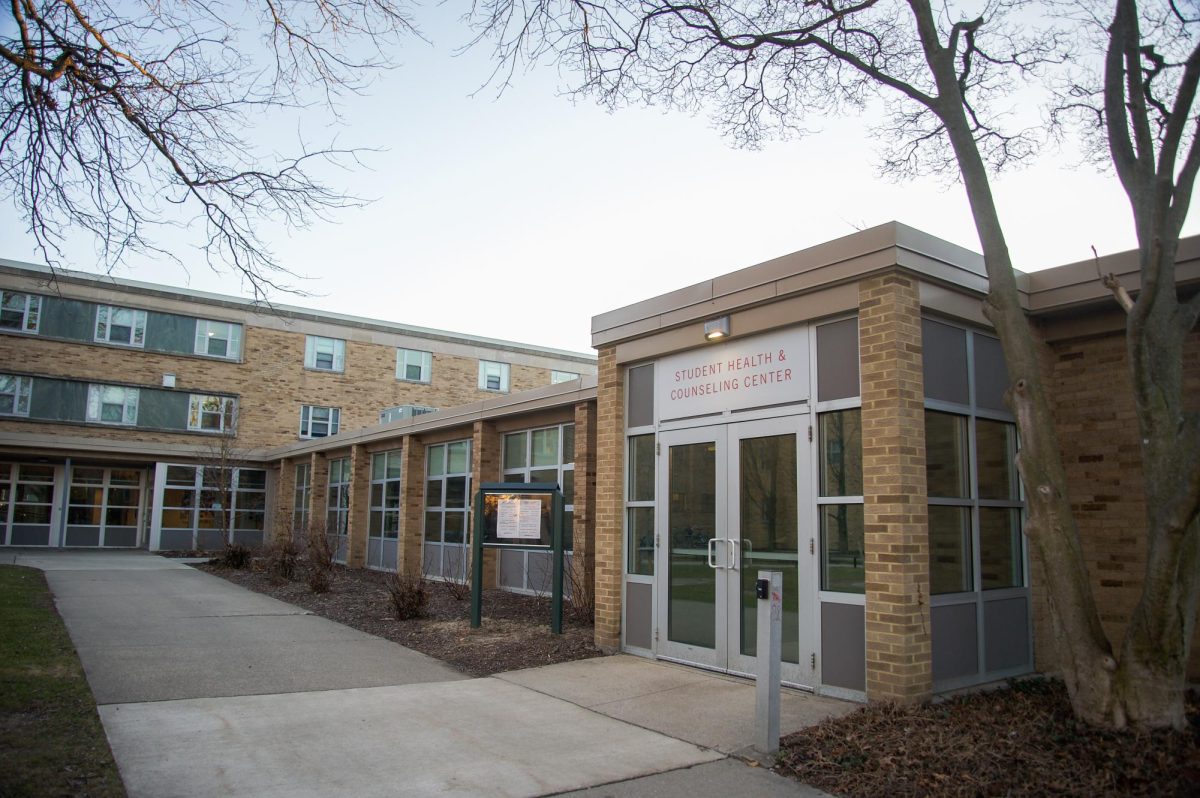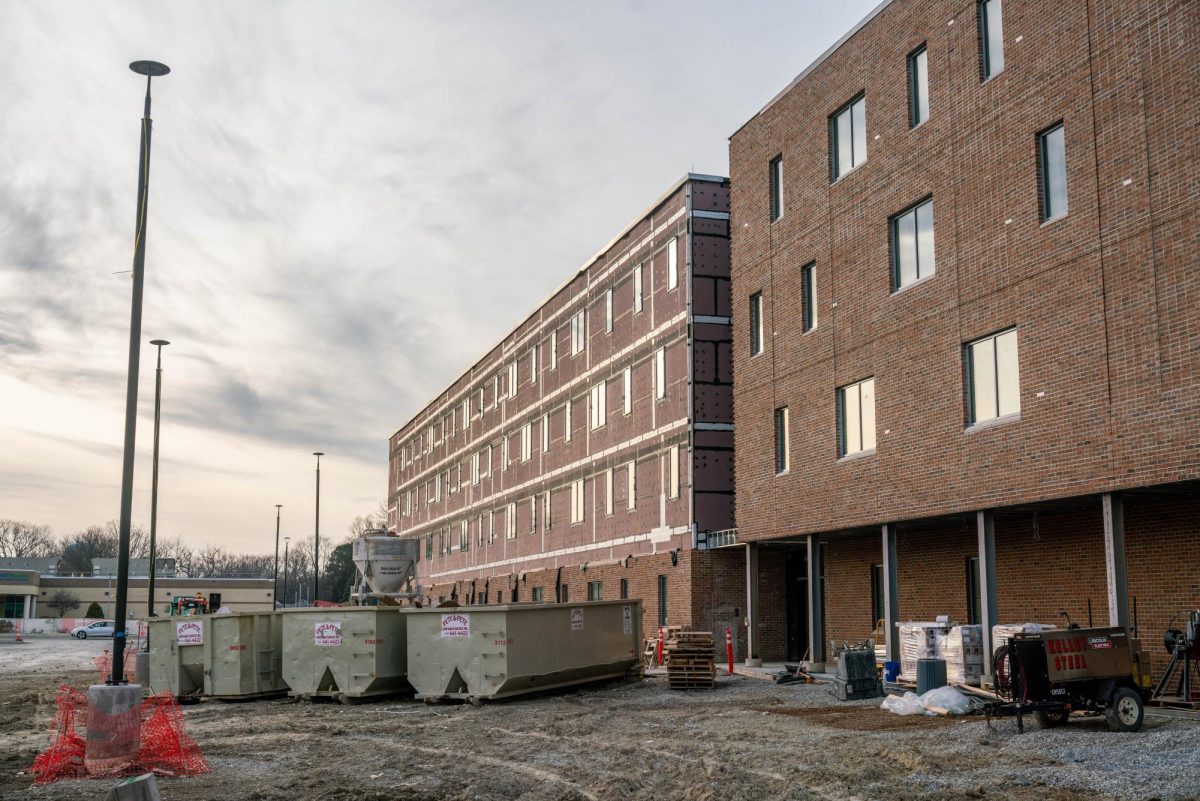On Feb. 1, Oberlin College officially launched its new partnership with UWill. The confidential teletherapy service is now offered through the Office of Counseling and Psychological Services. The online platform comes as a major structural adjustment to the accessibility and availability of professional, college-funded mental health support for students.
According to the American College Health Association, around 77 percent of college students struggle with their mental health. Executive Director of Student Health and Wellbeing Andrew Oni shared his ongoing concerns and aspirations for new developments in Oberlin’s current mental health services.
“Mental health has become a global crisis across college campuses and so what we tried to do, because we’re in rural Ohio, was to make sure that we provide access in different formats in different ways to students,” he said.
Director of CAPS John Harshbarger said that the CAPS Office credits the Executive Director, Andrew Oni, as well as Dean of Students Karen Goff, for being the driving forces behind the initiative to make mental health more accessible on campus.
According to Harshbarger, the initiative began with a search for a teletherapy company to complement the college’s on-campus counseling resources. While selecting a teletherapy company to work with, the team had several factors to consider, he said. The platform needed to have therapists experienced in working with college students and cognizant and committed to the background of Oberlin and its students.
“In our conversations with UWill, we let them know who our student body is,” Harshbarger said. “It is very diverse and that they would need to be able to employ therapists who are really well-versed, certainly in terms of sexuality, [and] in terms of cultural diversity in general. We were very clear that that is something that’s going to be important to us.”
With this in mind, Oberlin officially entered its two-year pilot partnership with UWill, with its continuance contingent on student feedback.
Harshbarger said that prior to the UWill partnership, one of the largest issues faced by the Oberlin Counseling Staff was logistics. With fewer than 20 counselors serving 3,000 students, the CAPS staff often had high, or even full caseloads. Students seeking ongoing treatment typically have a waiting period prior to intake and, following that, might only be able to meet biweekly for an hour of treatment.
“We never want to keep a student waiting,” Harshbarger said, “We do our best to get students in [to counseling] quickly, but some students need more than we can provide.”
Services in the Office of CAPS were also restricted in their hours of operation. Outside of weekly business hours, counseling and psychological services, save for emergency lines, are largely inaccessible for students including on weekends, during the summer, and while studying abroad or returning home.
“They’re overbooked generally [and] a lot of the appointments are based on when the provider is available, even if it’s not a reasonable time period,” College third-year Marley Cox said. “They also don’t continue care over the summer.”
Launched in Feb. 2020, the UWill company was designed specifically for college students and is currently the nation’s fastest-growing on-campus mental health provider, with over 1.5 million students already signed up. It also was the recommended choice for teletherapy by the National Association of College Student Administrators. The platform boasts 24/7, year-round access to licensed therapists as well as a plethora of self-paced wellness programming, including tips for sleep, anxiety, relationships, and much more. With over 200 Ohio-licensed therapists, Oberlin students have the autonomy to choose their best fit based on race, gender, topic, and several other parameters.
“For me, [therapy] helps us disentangle a lot of the things that as a student, and as a person, we face. It makes challenging things less challenging,” College second-year and Resident Assistant Amanda Cabrera Benitez said. “But it is very challenging work through that without constant therapy sessions, and that’s one of the biggest limitations of Oberlin Counseling.”
Benitez also said she hoped that minorities and international students would take advantage of the opportunity.
“I didn’t know what UWill was prior to this interview, but I think that programs like these are really good for students… because many people want to start therapy but cannot because of reasons such as economic status,” she said.
All students receive six free sessions annually and can sign up by accessing the CAPS webpage of the college site. Students wishing to continue beyond the free sessions are able to through insurance.
Although there is no direct communication between Oberlin and UWill therapists, UWill still works conjointly with the school in a few different ways. Students can provide Oberlin with general feedback on the program after each session. Additionally, in emergency cases, the teletherapists are equipped with the necessary contact information to reroute students to on-campus resources or other hotlines.
Even without any current mental health concerns, both Harshbarger and Oni are still urging students to register on the platform and explore its resources. Harshbarger also anticipates that UWill will offset the CAPS therapy workload and make the current counselors considerably more available for student intake by lowering wait times.
But teletherapy is just one of several budding initiatives in the CAPS office as it continues to branch out and create new mental health services on campus. Harshbarger said that another service currently underway and soon to be formally launched is Thriving Campus: a platform to help simplify the process of matching students with mental health providers both in the Oberlin community and nearer to home.
Until then, UWill is live and available for any student seeking professional mental health guidance today.
As a disclaimer, UWill is not designed to be used in the event of an emergency. If an urgent concern or crisis arises, please call or text the Oberlin College and Conservatory 24/7 crisis support line at 855-256-7160, or the Ohio Suicide & Crisis Lifeline at 988. For emergencies, Campus Safety is also available 24/7 at 440-775-8444.









